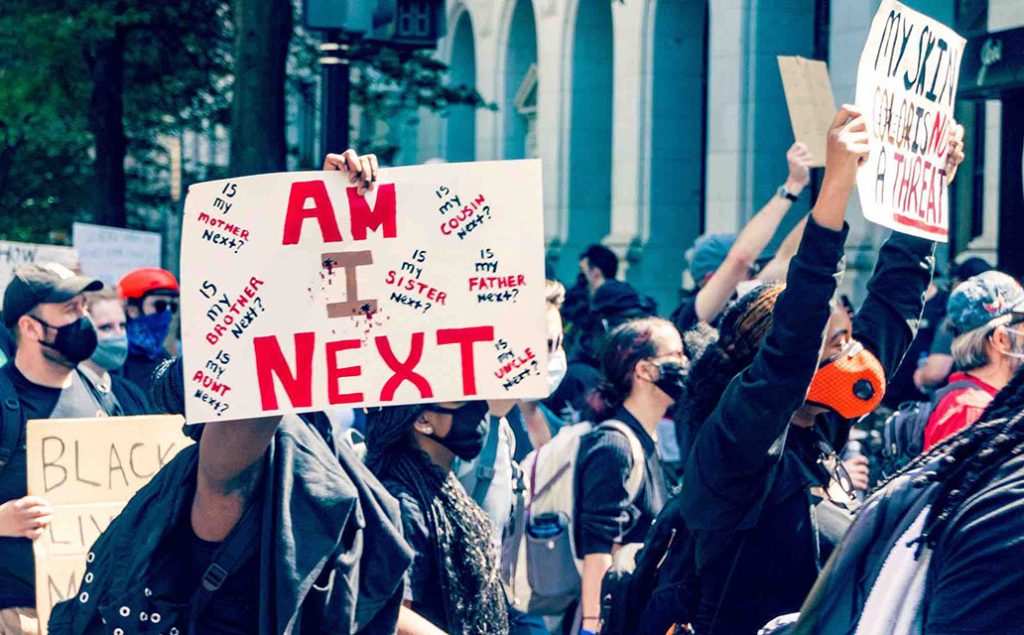Post-traumatic stress disorder (PTSD) is a mental health condition that affects individuals who have experienced or witnessed a traumatic event. Research suggests that African American and Latino adults may have higher rates of PTSD compared to their White counterparts. Additionally, the course of PTSD in these minority groups is often more chronic and challenging. This article aims to shed light on the prevalence, underlying factors, and treatment considerations related to PTSD within the Black community.
Prevalence of PTSD in the Black Community
Studies indicate that African Americans have the highest lifetime prevalence of PTSD (8.7%) compared to White (7.4%), Latino (7%), and Asian (4%) populations. The increased rates of PTSD among African Americans can be attributed to a higher likelihood of experiencing traumatic events such as racial trauma.
Factors Contributing to Prevalence of PTSD in the Black Community:
- Exposure to racially traumatic events, such as witnessing or experiencing racial violence, discrimination, and racial profiling.
- Historical trauma, including the enduring effects of discrimination, and the intergenerational transmission of trauma.
- Racial stereotypes and expectations, such as the strong black woman trope, which place additional pressure and emotional burdens on Black individuals.
- Disparities in access to mental health resources, including limited availability of culturally competent care and barriers to seeking treatment.
- Overrepresentation of Black individuals in the prison system and racial disparities in the criminal justice system, contribute to trauma and increased risk of developing PTSD.
- Racial disparities in homeownership, wealth accumulation, and educational opportunities, which can lead to chronic stress and trauma.
- Systemic racism and institutionalized discrimination that perpetuates racial inequalities and contributes to ongoing trauma in the Black community.
Sociocultural Factors and Racial Stressors
Sociocultural factors and racial stressors, including experiences with discrimination, contribute to the higher prevalence and poorer outcomes of post-traumatic stress disorder in African-American individuals. Discrimination based on race and ethnicity can act as a chronic stressor and lead to the development and persistence of PTSD symptoms.
Challenges in Diagnosis and Treatment
African Americans with PTSD face various barriers to receiving appropriate mental health treatment. These barriers include financial challenges, limited access to transportation services, and a lack of knowledge about available resources. Furthermore, individuals with serious risk factors, who are often at a higher risk of developing PTSD, may face additional challenges due to homelessness, incarceration, and limited access to mental healthcare.
Racial Trauma and PTSD
Any individual who has experienced an emotionally painful, sudden, and uncontrollable racist encounter is at risk of suffering from a race-based traumatic stress injury. Experiences of race-based discrimination can have profound psychological impacts, leading to symptoms similar to those of post-traumatic stress disorder (PTSD), including depression, anger, recurring thoughts, physical reactions, hypervigilance, low self-esteem, and emotional detachment from traumatic events. It is important to note that while RBTS shares symptoms with PTSD, it is not classified as a mental health disorder but rather a mental injury resulting from living within a racist system or experiencing racism.
Identifying RBTS involves self-assessment of symptoms experienced by individuals who have encountered racism and recognizing the need for support and healing. Seeking therapy from multicultural or racial trauma-informed therapists is crucial for addressing race-based traumatic stress injuries. These therapists create safe and empowering spaces that acknowledge the diverse forms of racialized trauma and work towards healing and resilience.
Underdiagnosis of PTSD
Research suggests that PTSD is underdiagnosed among African-American individuals with serious mental illness or a family history of mental health problems. The overlap between PTSD symptoms and symptoms of serious mental illness, such as depression and delusions, can lead to an underidentification of PTSD. Routine assessment of PTSD and traumatic histories is crucial in community mental health services to ensure appropriate diagnosis and treatment by a mental health professional.
Treatment Considerations
To address PTSD effectively in the Black community, there is a need for culturally sensitive counseling services that acknowledge the specific traumas experienced by individuals. Incorporating trauma-informed approaches that address childhood abuse, grief, and racial trauma can help improve treatment outcomes and racial equality. Increasing access to mental health resources, raising awareness about available services, and promoting community support are also vital in addressing PTSD within the Black community.
PTSD is a significant mental health concern within the Black community, with Black men and women experiencing higher rates of the disorder. Sociocultural factors, racial stressors, and barriers to mental healthcare contribute to the chronicity and underdiagnosis of PTSD in this population. By recognizing and addressing the unique experiences and needs of African-American individuals, mental health professionals can provide more effective treatment and support for PTSD within the Black community.







